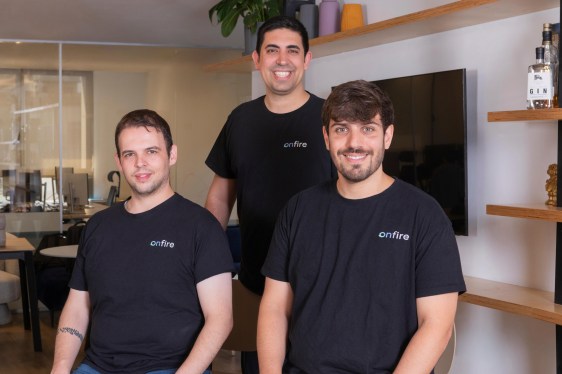Developers often dislike ineffective marketing, but they still need methods to discover useful tools and services. This is why many developers gather on forums and sites like Hacker News, Reddit, and Stack Overflow to discuss their development kits and compare different tools. This discussion represents a clear buying intent, which is the signal that the Israeli startup Onfire aims to help software vendors capture. The company monitors public forums to see what tools developers are talking about. It then uses artificial intelligence to identify which companies those commenters work for and who the key decision-makers are within those organizations. The platform also incorporates data on budget cycles, combining all this information to help B2B sales teams time and contextualize their outreach efforts effectively.
Onfire is now emerging from its stealth period with twenty million dollars in funding. This includes a fresh fourteen million dollar Series A round co-led by Israeli venture capital firms Grove Ventures and TLV Partners. IN Venture, the venture arm of Japan’s Sumitomo Corporation, also participated, alongside LeumiTech77, a special fund created to mark Israel’s seventy-seventh anniversary.
The founders of Onfire, CEO Tal Peretz, CTO Shahar Shavit, and CPO Nitzan Hada, are alumni of the Israel Defense Forces’ Unit 8200. This intelligence unit is often compared to the NSA and has been recognized with awards, though it has also been the subject of controversy for its alleged use of mass surveillance on civilians using advanced AI and data tools. After moving into the private tech sector, the trio saw an opportunity to apply their intelligence expertise to the SaaS industry.
Since its beta launch twelve months ago, the startup estimates it has driven more than fifty million dollars in closed deals for its clients. Its early users include companies like ActiveFence, Aiven, Cyera, Port, and Spectro Cloud, as well as other firms selling data, cybersecurity, FinOps, and observability solutions to technical buyers.
Given the founders’ intelligence backgrounds, Onfire’s method of scanning public data to identify commenters’ employers is likely to raise questions. However, Grove managing partner Lotan Levkowitz frames the startup’s outcomes as a win-win situation. He stated that their customers are happy, and even their prospects are happy because they are pitched with the right things at the right time.
The company believes its vertical, data-centric focus will give it an advantage over competitors. While other AI-enabled tools promise to improve enterprise sales, CEO Tal Peretz says personalized outreach is impossible without a solid data foundation. He explained that what sets Onfire apart is that it started as a data-first company, and only then added the AI engine on top of that data.
According to Levkowitz, Onfire is filling a gap that Grove Ventures had identified even before meeting the founders. The firm had concluded that software infrastructure companies were not effectively leveraging AI in their go-to-market strategy, and the missing piece was the data. Onfire enters the market at a time when companies are finding it challenging to rely solely on product-led growth for enterprise sales. Some in the industry believe a new data layer is necessary to support go-to-market teams.
Before writing any code, the Onfire team interviewed approximately 275 revenue leaders in the IT space. They discovered that while most companies still derived the majority of their revenue from direct sales efforts, the adoption of AI tools was changing the landscape. They learned that buyers could benefit from AI-based contextual tools to achieve more with less. However, traditionally tough buyers like CISOs, CTOs, and engineering teams now have to filter out more noise than ever due to AI tools that enable mass outreach. Providing context could help salespeople cut through this noise.
Peretz stressed that Onfire’s solution is about mapping signals to the specific context of a customer. For instance, selling a data solution to a large organization requires a different approach than selling a cybersecurity solution. Levkowitz finds this particularly interesting because it means that with every customer Onfire acquires, its dataset improves, creating a compounding effect.
Onfire considers this compounding data layer to be its defensive moat against CRM incumbents like Salesforce and HubSpot. This verticalized approach allows them to offer a unique value proposition to the go-to-market teams of software infrastructure companies.
The startup plans to use its new funding to hire personnel in AI, research and development, and sales. Its core AI system is built in Israel, where sixty percent of the team is based. However, its go-to-market operations are based in New York, as the company expects the United States to be one of its primary markets.

